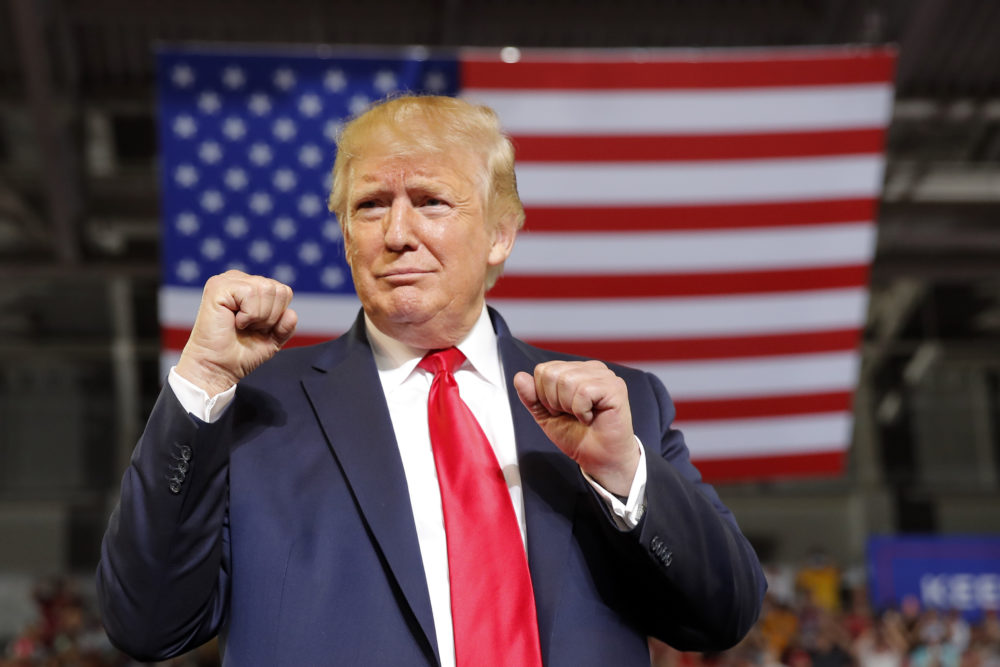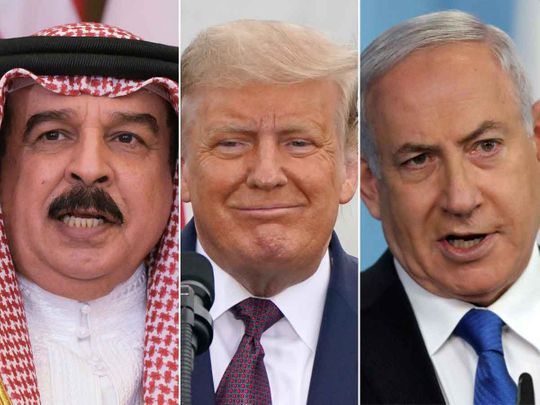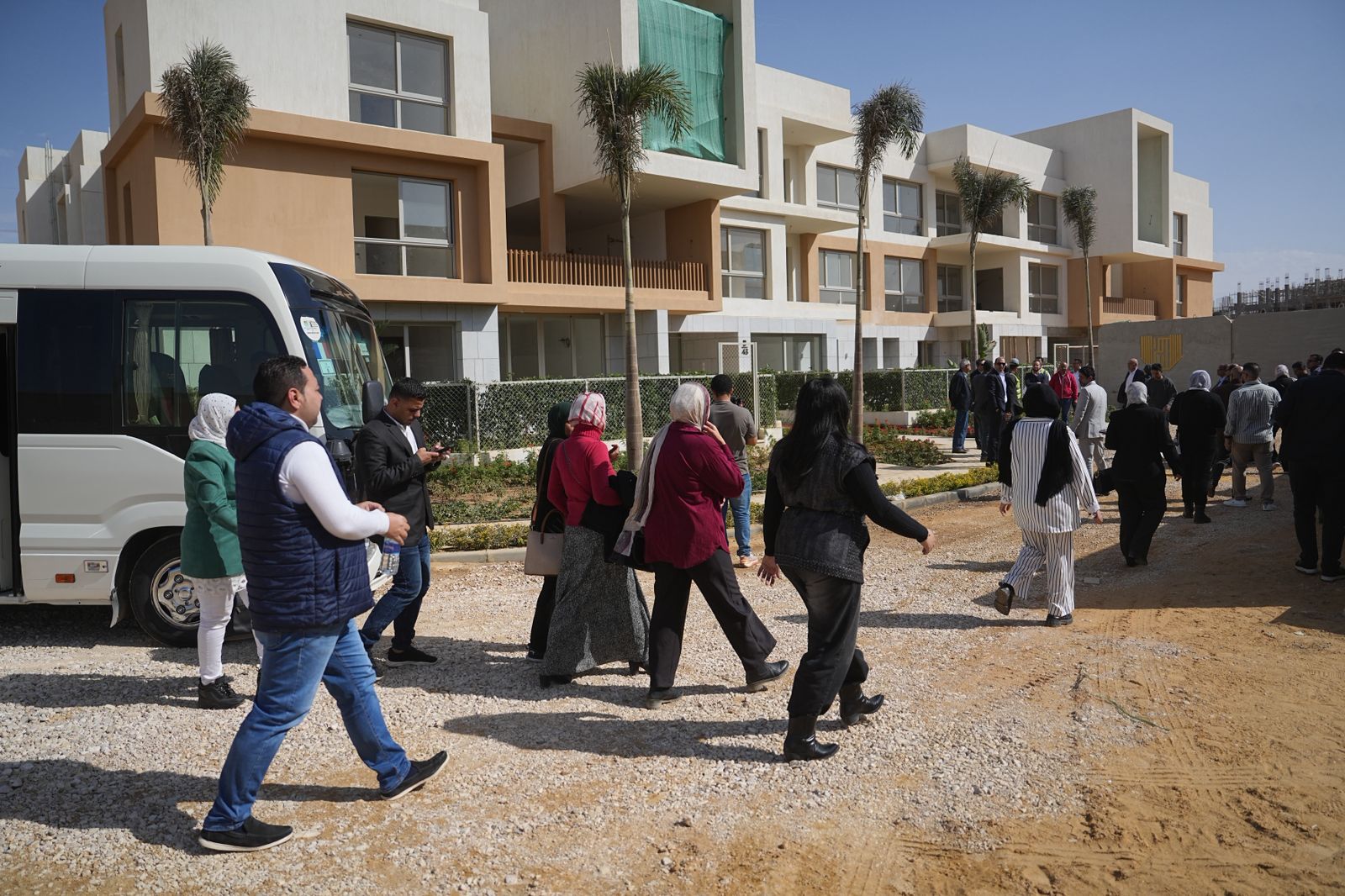Dubai-Massader News
Bahrain joined the United Arab Emirates in agreeing to normalize relations with Israel on Friday, a move forged partly through shared fears of Iran, but one that threatens to leave the Palestinians further isolated, according to Reuters.
U.S. President Donald Trump tweeted the news after he spoke by phone to Bahrain’s King Hamad bin Isa Al Khalifa and Israeli Prime Minister Benjamin Netanyahu, the White House said.
“This is truly a historic day,” Trump told reporters in the Oval Office, saying that he believed other countries would follow suit.
“Opening direct dialogue and ties between these two dynamic societies and advanced economies will continue the positive transformation of the Middle East and increase stability, security, and prosperity in the region,” the United States, Bahrain and Israel said in a joint statement.
A month ago, Bahrain’s fellow Gulf Arab State, the United Arab Emirates, agreed to normalize ties with Israel under a U.S.-brokered deal which is scheduled to be signed at a White House ceremony hosted by Trump on Sept. 15.
The Israel-UAE ceremony will be attended by Israeli Prime Minister Benjamin Netanyahu and Emirati Foreign Minister Sheikh Abdullah bin Zayed al-Nahyan. The joint statement said Bahrain’s Foreign Minister Abdullatif Al Zayani would join that ceremony and sign a “historic Declaration of Peace” with Netanyahu.
On Friday, Netanyahu said Bahrain’s decision marks a “new era of peace.”
“For many long years, we invested in peace, and now peace will invest in us, will bring about truly major investments in Israel’s economy – and that is very important,” Netanyahu said in a video statement.
Emirates Ministry of Foreign Affairs spokeswoman Hend al-Otaiba congratulated Bahrain and Israel, saying it marked “another significant and historic achievement which will contribute enormously to the stability and prosperity of the region.”
But Palestinians were dismayed, fearing the moves by the UAE and now Bahrain will weaken a long-standing pan-Arab position that calls for Israeli withdrawal from occupied territory and acceptance of Palestinian statehood in return for normal relations with Arab countries.
A statement issued in the name of the Palestinian leadership condemned the agreement as a betrayal of the Palestinian cause.
“The Palestinian leadership rejects this step taken by the Kingdom of Bahrain and calls on it to immediately retreat from it due to the great harm it causes to the inalienable national rights of the Palestinian people and joint Arab action,” the statement said.
The Palestinian Foreign Ministry said the Palestinian Ambassador to Bahrain was called back for consultations.
In Gaza, Hamas spokesman Hazem Qassem said Bahrain’s decision to normalize relations with Israel “represents a grave harm to the Palestinian cause, and it supports the occupation.”
Hossein Amir-Abdollahian, a special adviser on international affairs for the speaker of Iran’s parliament, called Bahrain’s decision a great betrayal to the Islamic cause and Palestinians.
EYES ON SAUDI
The easing of relations with Israel is happening amid a backdrop of shared fears about the threat of Iran to the region. The biggest question now is whether Saudi Arabia, one of the most influential countries in the Middle East and a close ally of the United States, will follow suit.
The Trump administration has tried to coax other Sunni Arab countries, including Saudi Arabia, to engage with Israel. Riyadh has so far signaled it is not ready.
The agreements are taking place as Republican Trump seeks a second term on Nov. 3, trailing Democratic candidate Joe Biden in several opinion polls. Foreign policy has not figured prominently in the election campaign, but Trump is eager to present himself as a peacemaker even as he rattles sabers against Iran.
Trump’s pro-Israel moves have been seen, in part, as an effort to bolster his appeal to evangelical Christian voters, an important segment of his political base.











